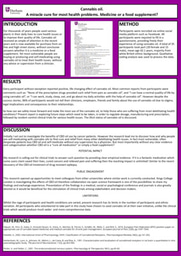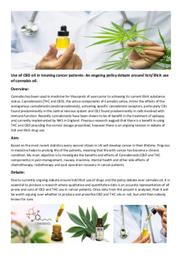Leadership in Action Reflection
Think Pacific programme was very interesting, intense and included the following schedule:
Week 1-2 learn about the culture of Fiji Islands. Meet mentors, familiarise with local customs, and find out about what issues we should be addressing and start thinking bout the plan of action.
Week 2-3 develop a sustainable plan to address problems associated with Covid 19 pandemic. Tackle anti vaccination campaign with Child Benefit Fiji to resume face to face operations of this NGO.
Week 3-4 create materials and strategies which can be used by Child Benefit Fiji during our training and after we have completed the project.
Week 4-5 present our materials to stakeholders, receive feedback, monitor progress, alter & adapt any proposed strategies.
I have also had an opportunity to setup and work on SMART goals during this project.
Specific target of the most relevant issues (by educating Fijian population about covid vaccination, we can save lives and restore livelihoods)
Measurable progress (the numbers of vaccinated people are increasing daily)
Achievable goals start with small accomplishments (leaflet drop off, social media information, text messages from network providers is a canvasing first steps before field vaccination clinics)
Relevant to the local community and to the rest of the world (boarders and tourism are closed, 40% of population is unemployed, by working together we can return to traveling and employment)
Time is limited and precious, need to act now ( vaccine is now available, we just need Fijians to agree to take it)
I would like to pay a tribute to the Think Pacific leaders for developing such an insightful and rich programme despite the travel restrictions and exclusively remote training. I have met and worked with truly inspiring people who taught me very valuable skills such as resilience, creativity, the importance of culturally intelligence, integrity and responsibility.
I have always known that my mostly Western mindset has its limits, but by exploring wider cultures and values I was hoping to challenge my existing norms to become a better global citizen.
The project has challenged me in many different ways.
Fear of having so much to do (to change the world for the better) and so little time (only 6 weeks this summer). I was initially overwhelmed with my own expectations of myself and slightly unsure whether it is actually possible to achieve something meaningful and world changing in such little time frame. However, the programme mentors have helped by creating daily, weekly meetings, setting up tasks, providing educational materials, guiding us through the first week until we found our own feet. We had great communication platforms (slack) and tools (zoom) available so we could attend virtual office, work and explore Fiji project any time of the day together or individually.
I was a part of an amazing team of Laidlaw scholars who helped me to discover my thinking outside of the box skills, which I am sometimes fearful of. Team work was interesting and my cooperative colleagues have helped to focus on the goals we have set up together.
I have really enjoyed working on this project and challenging my presentation skills because I was a part of a team. I can certainly work on my own, which was the case in the first year of Laidlaw Leadership training, however working in a team is so much better and more fun! I think my team work skills have been practised in a very kind and open-minded environment. We have been able to bring the best out of each other because we had mutual respect, we allowed space for creative thinking, and essentially built on each other’s ideas.
The LIA was emotionally challenging sometimes because of the sensitive topics such as poverty, inequality, lack of basic resources and education. Despite having experience of living in both developing and developed countries, I was not prepared for the harsh reality of life in the country such as Fiji. I have chosen to think positively and channelling my thoughts away from despair, but towards the ideas of how to make things better. No matter how small or big the impact may be, I believe it is the most productive way forward. This experience reminded me how fortunate I am for the opportunities I have around me, which include studying at Durham University and being a part of Laidlaw community.
It is no longer enough form me to receive a first class degree and have a good job after. I would really like to dedicate my employment years to work on sustainable development goals and play my part, whether its small or big, in achieving healthy, balanced and equal quality of life for all world citizens.
LIA had such far reaching impact on me that it has actually changed me and I think it made me a better world citizen. I think ethical, mind opening leadership training provided by Laidlaw programme, should expand beyond small cohorts and should be implemented in all higher education courses and even school curriculum. We should aim to make ethical leadership a social norm and the only way to think and behave.


Please sign in
If you are a registered user on Laidlaw Scholars Network, please sign in